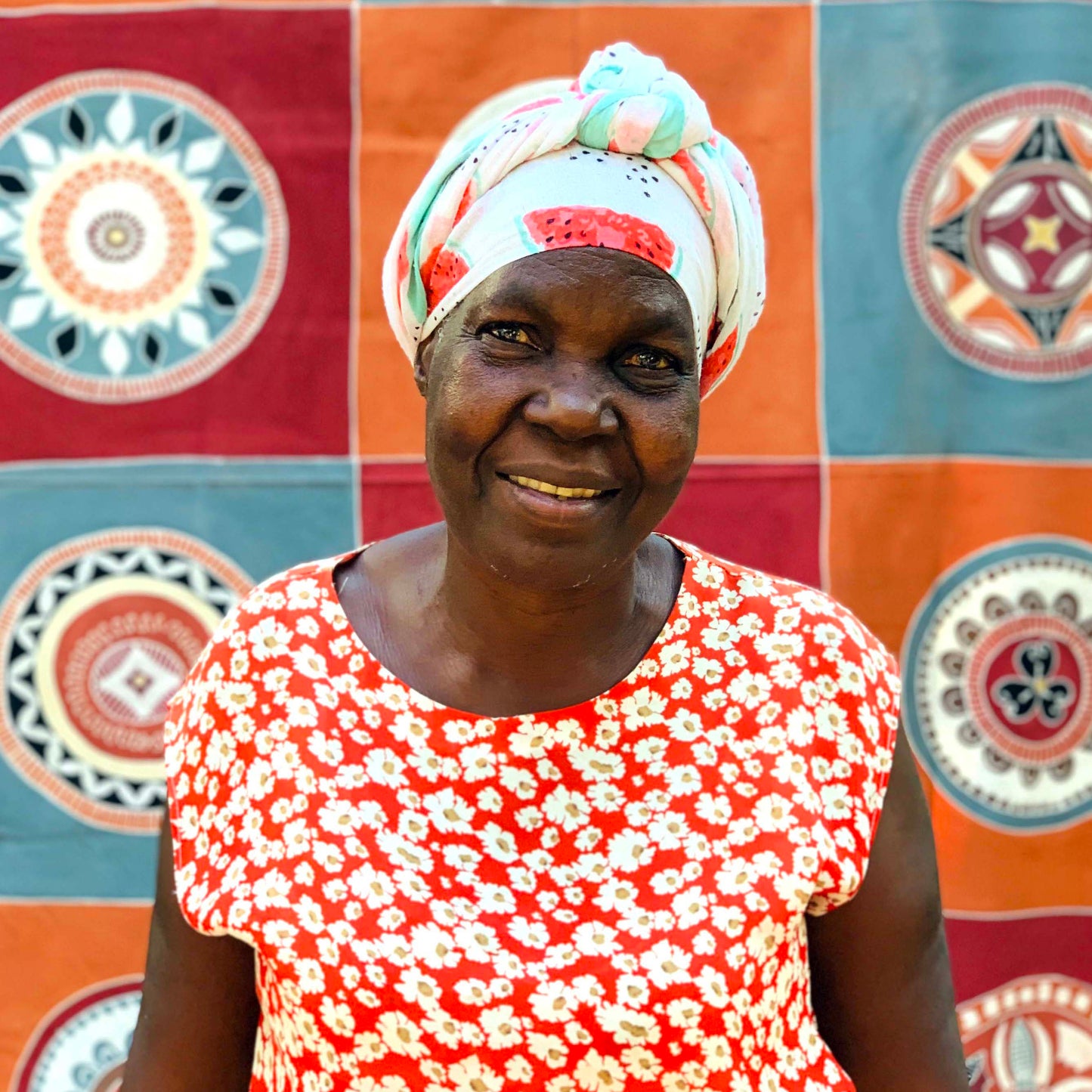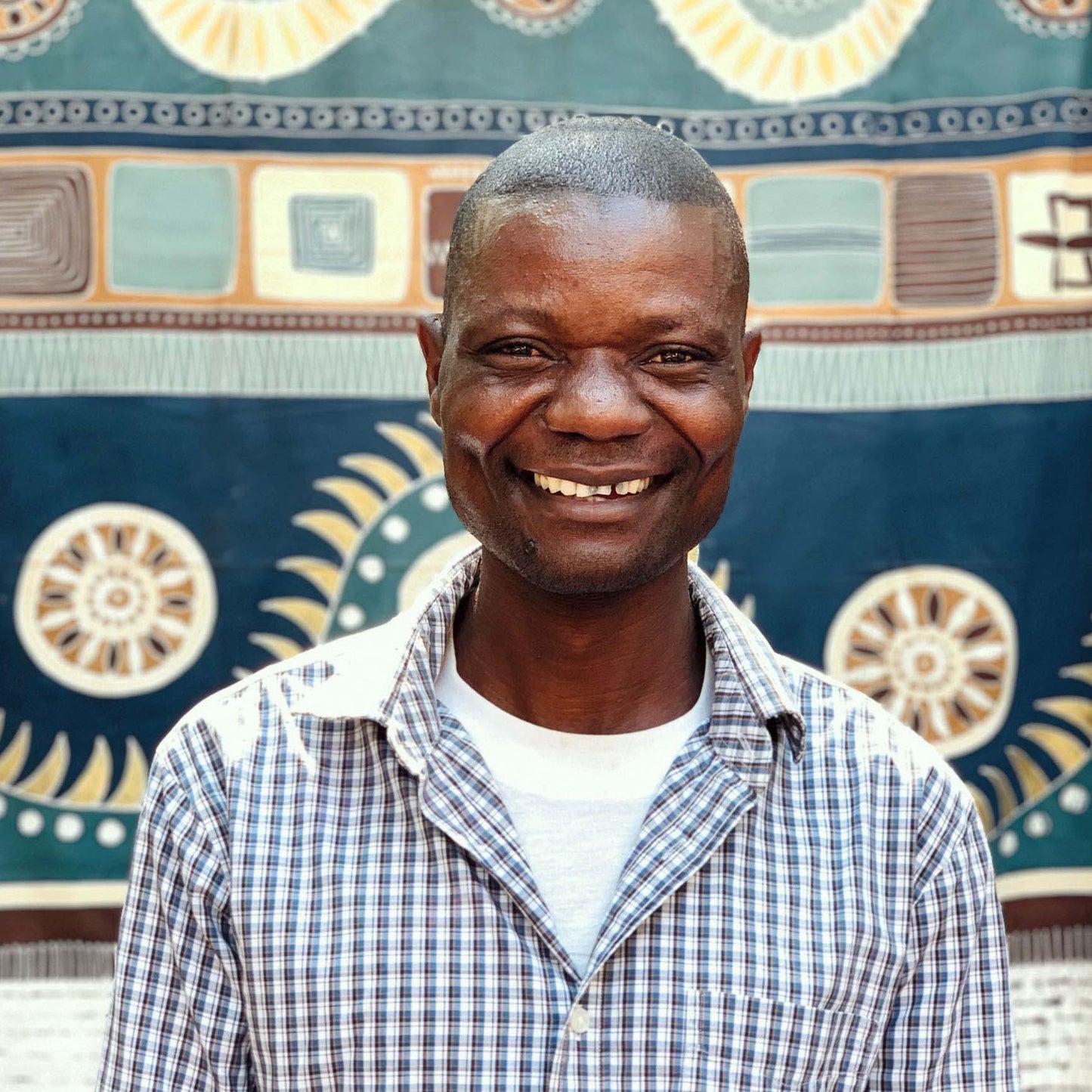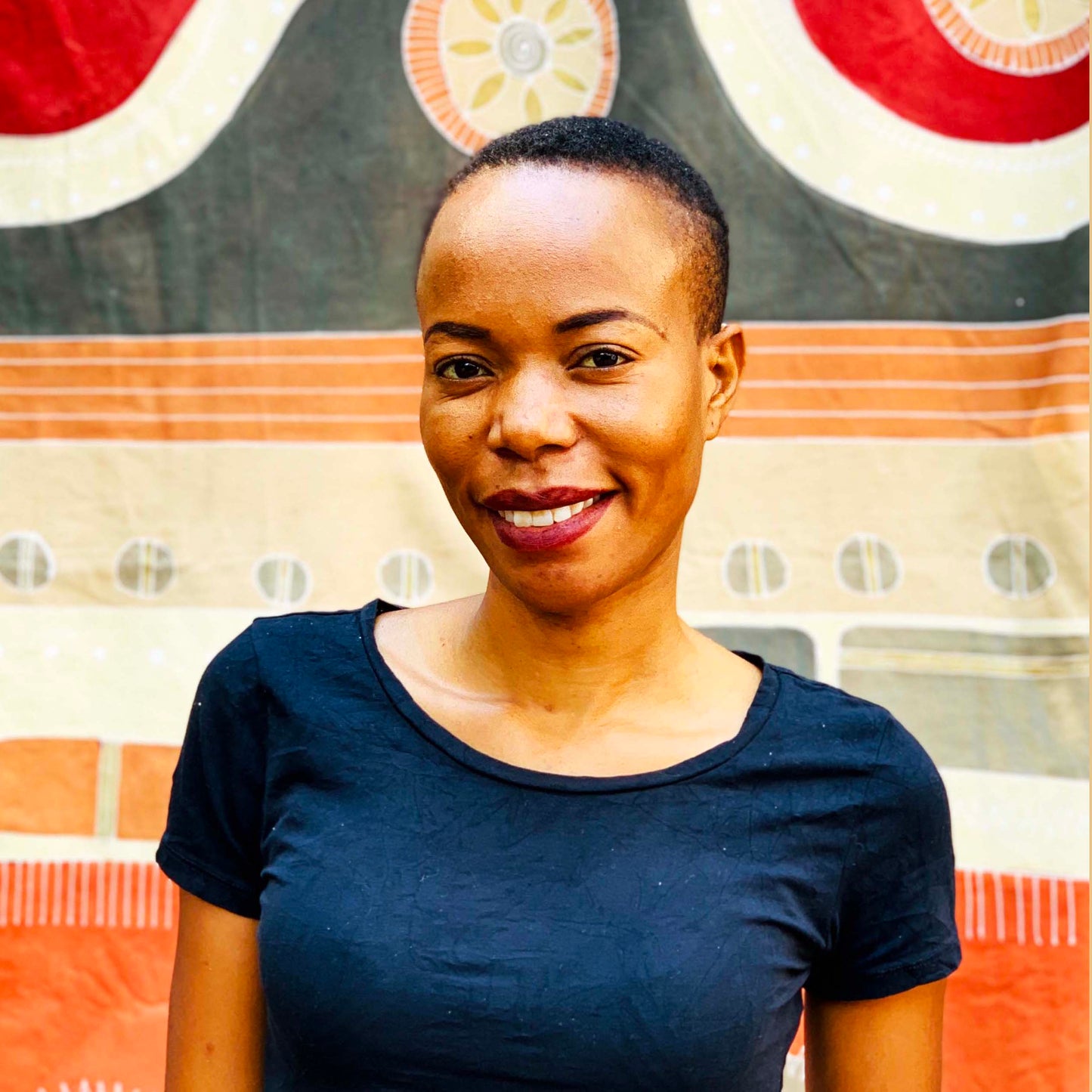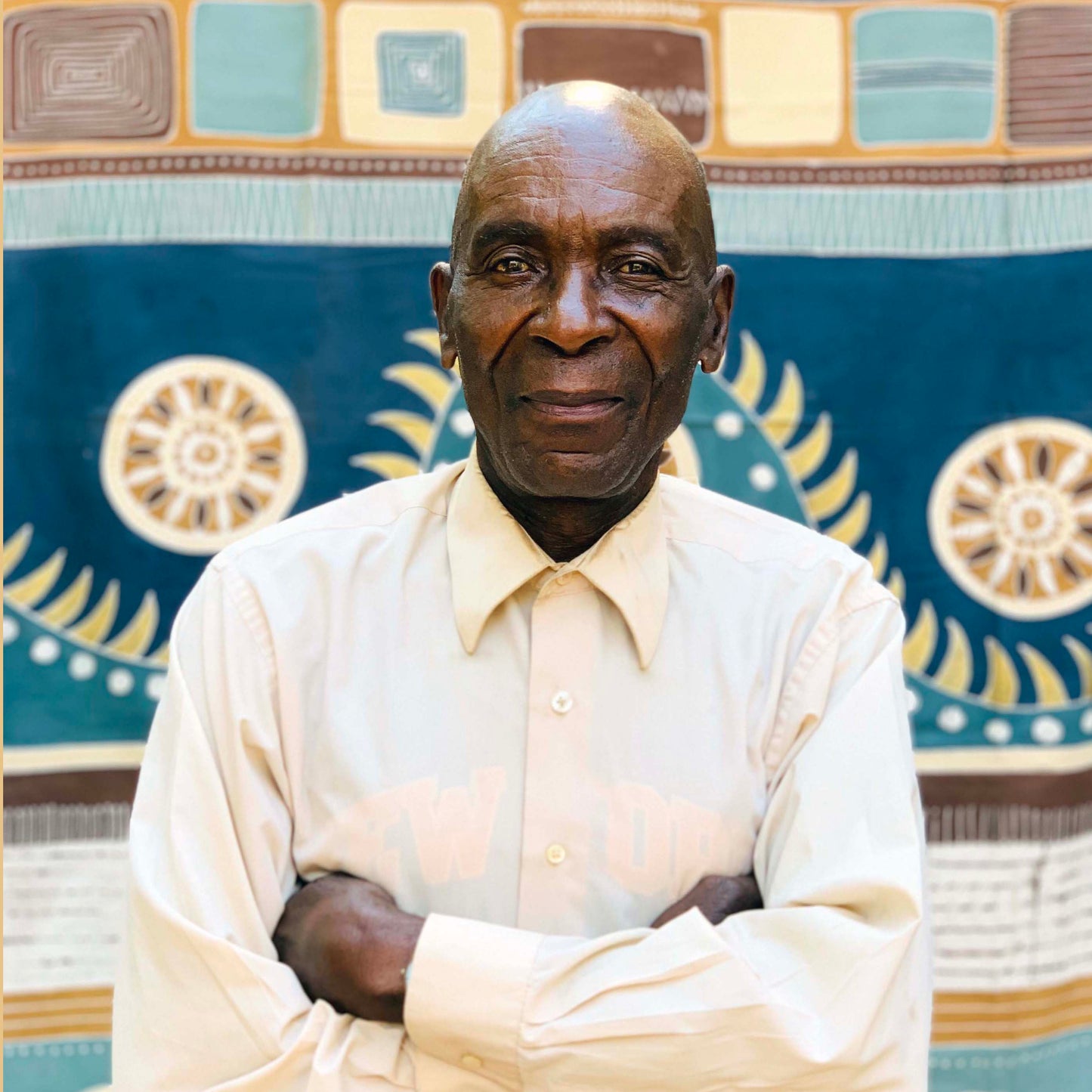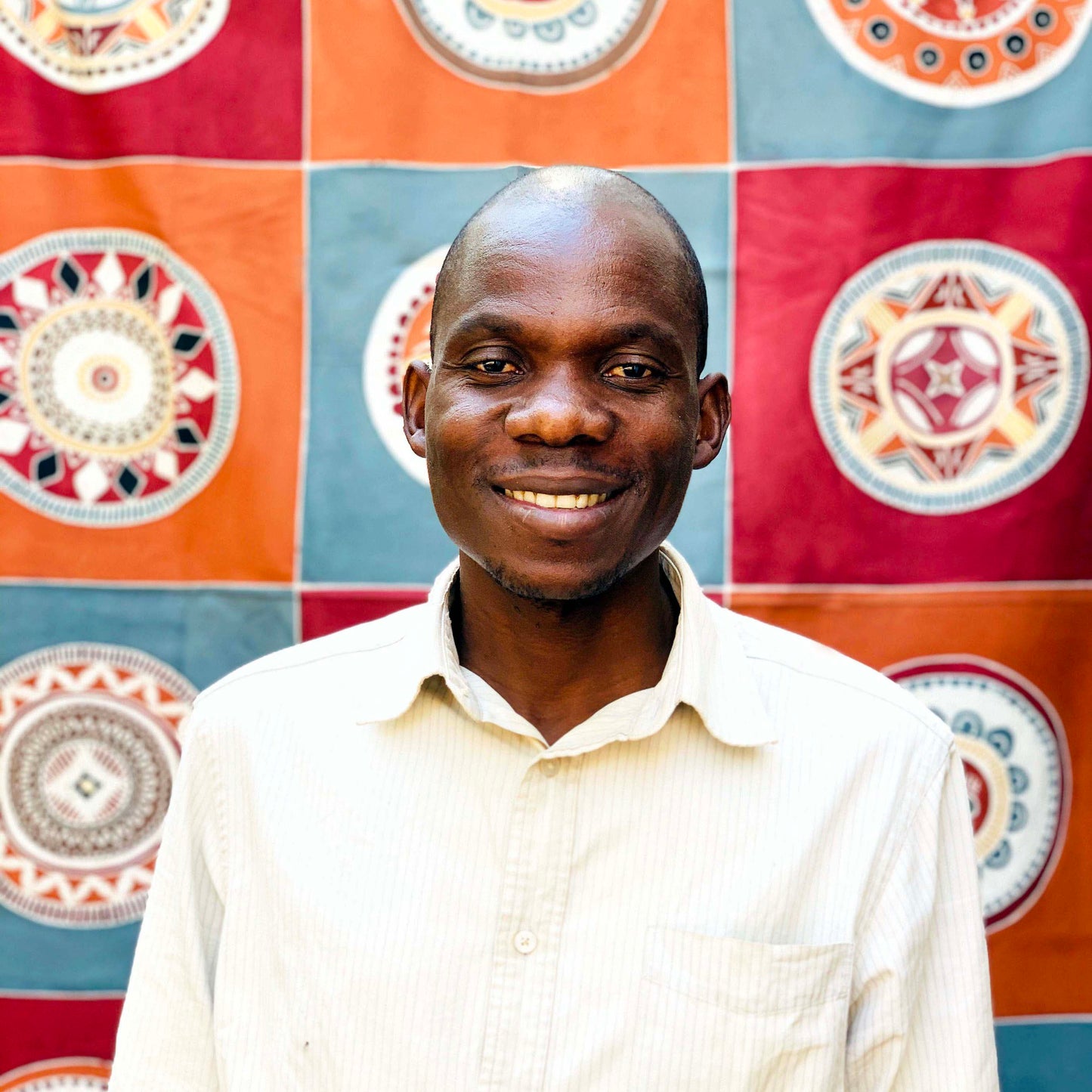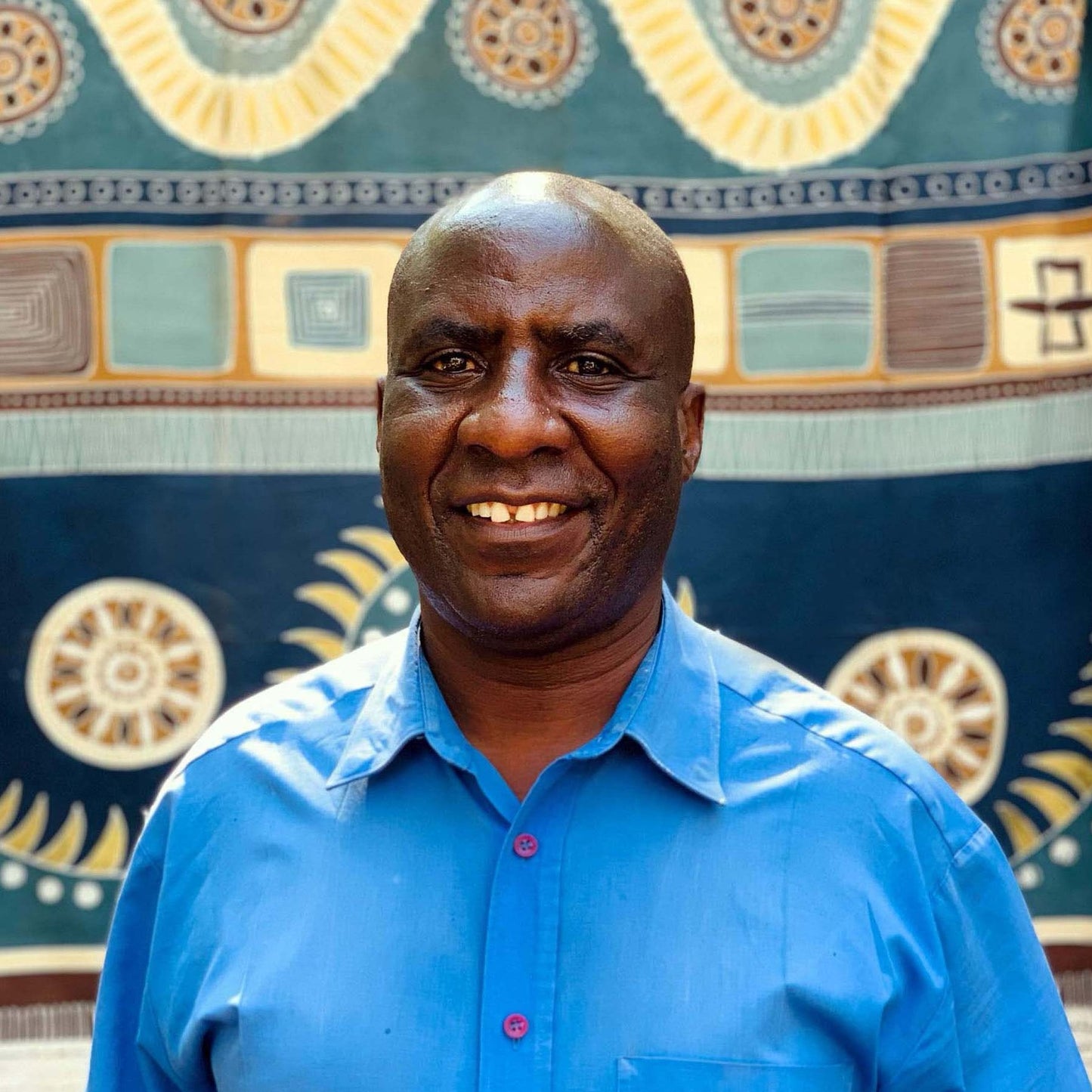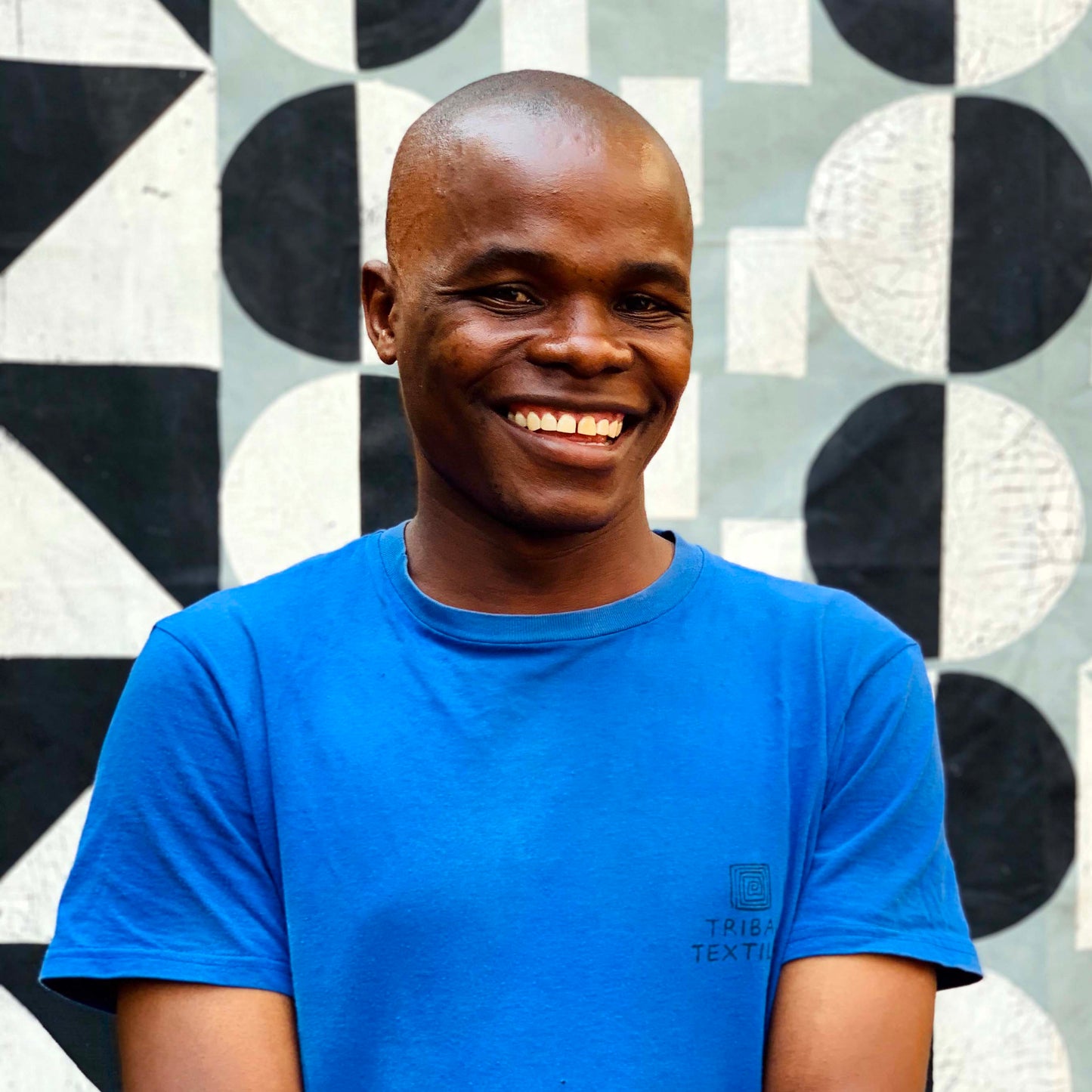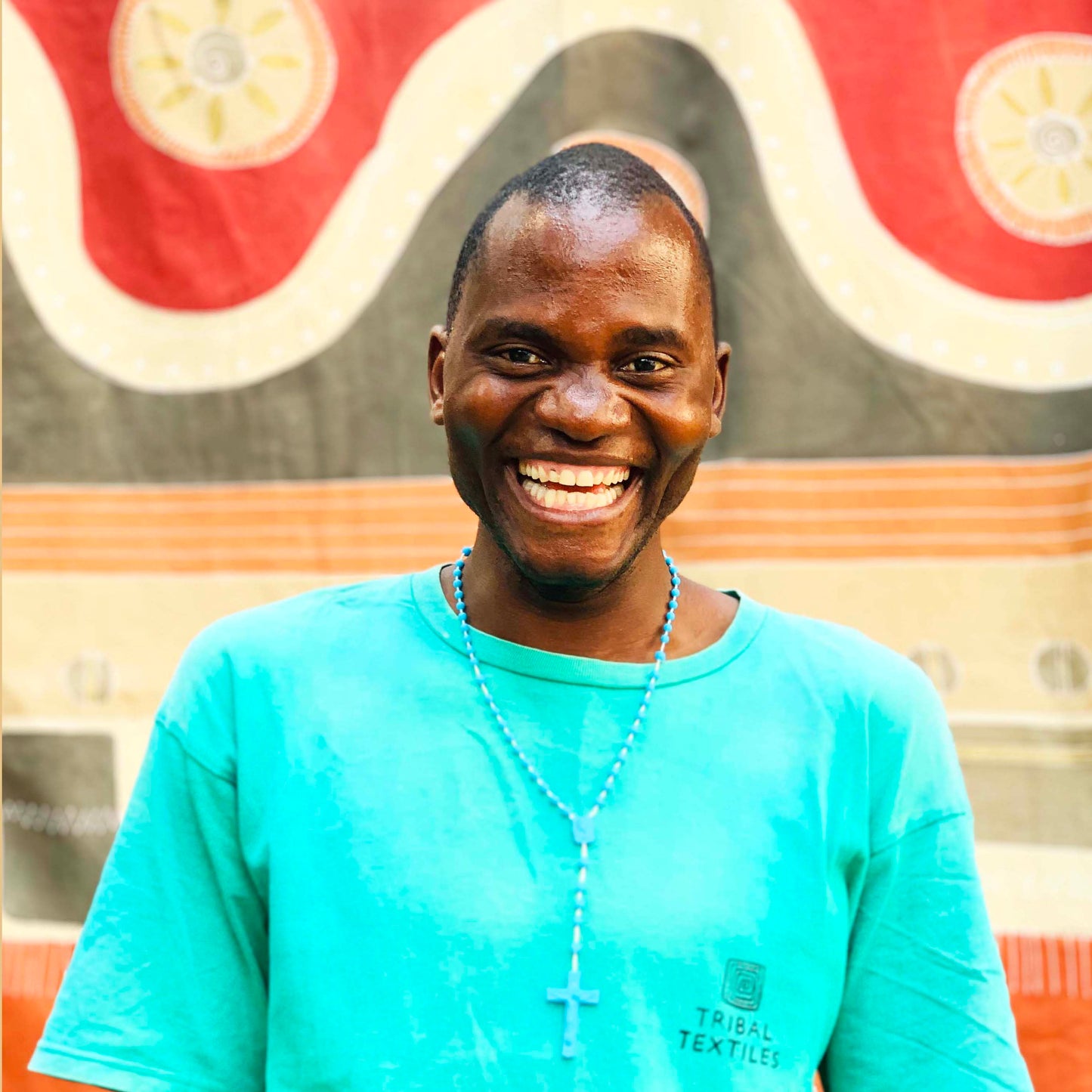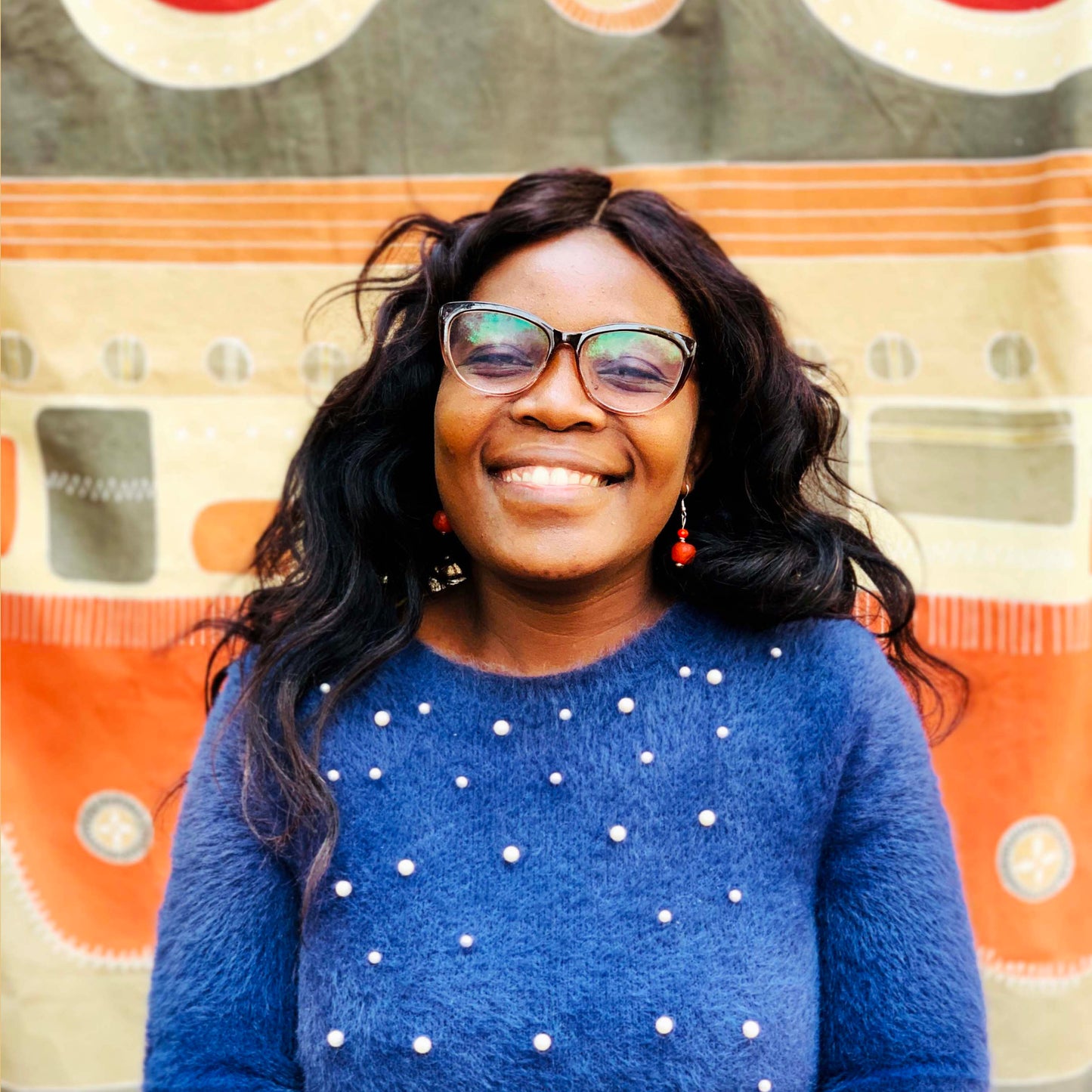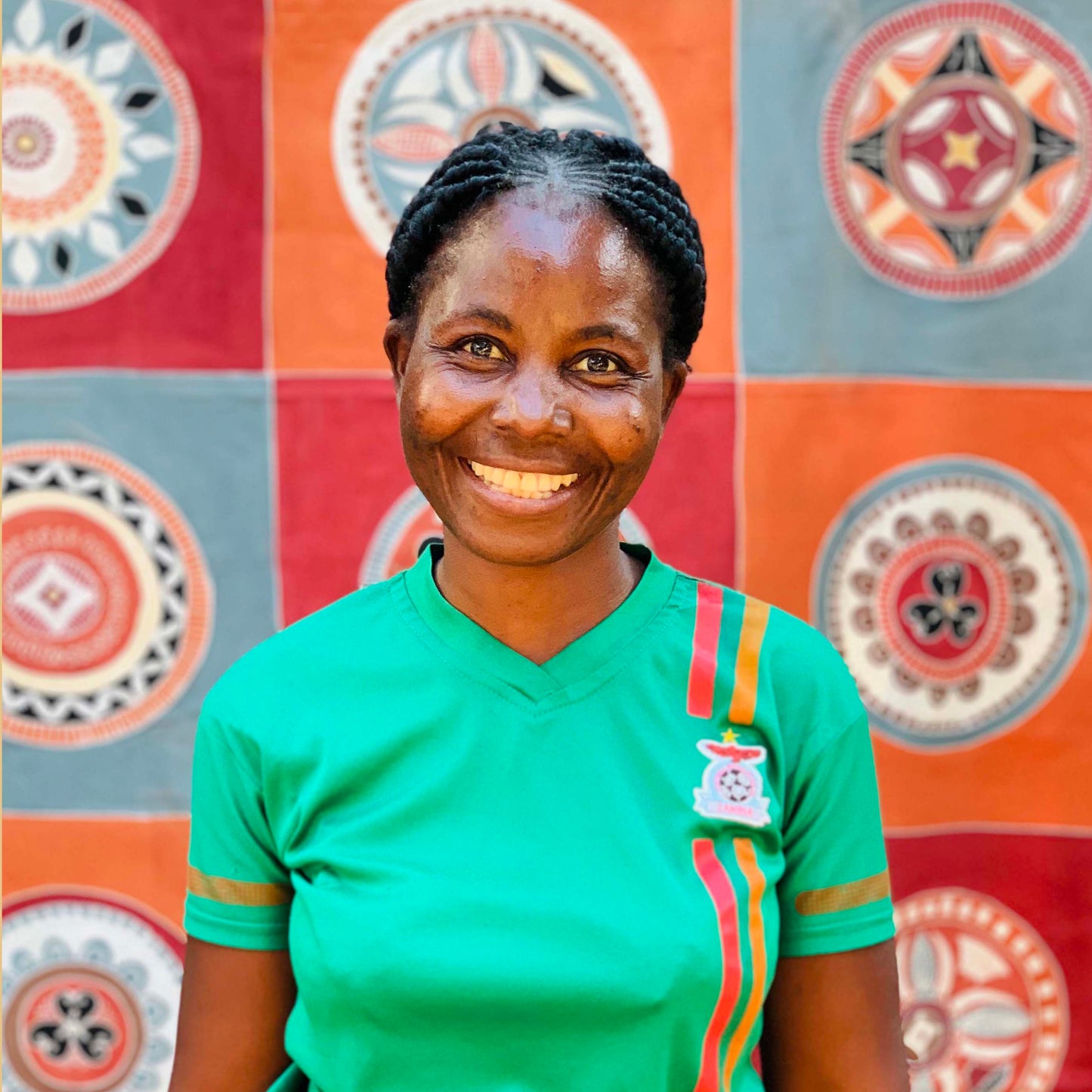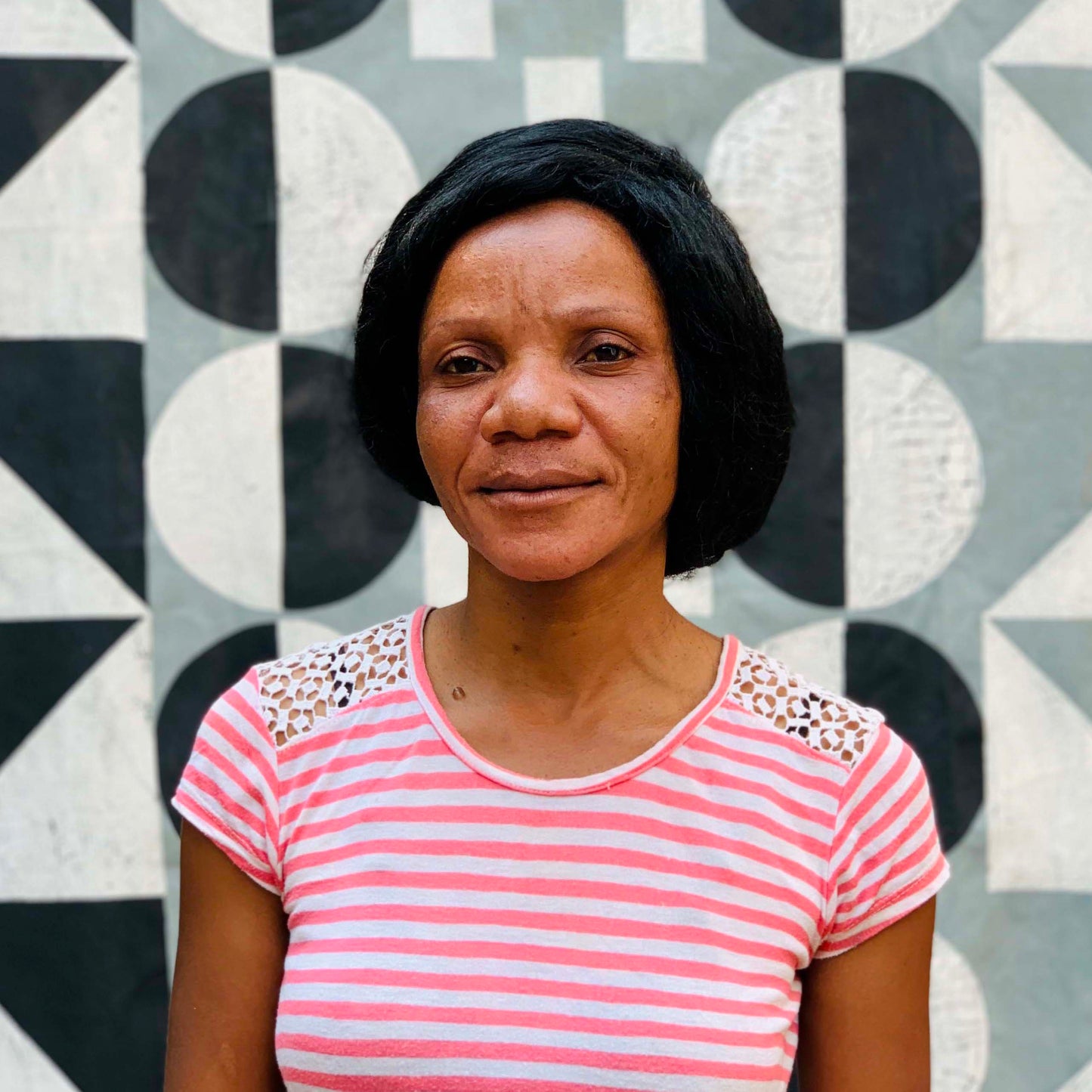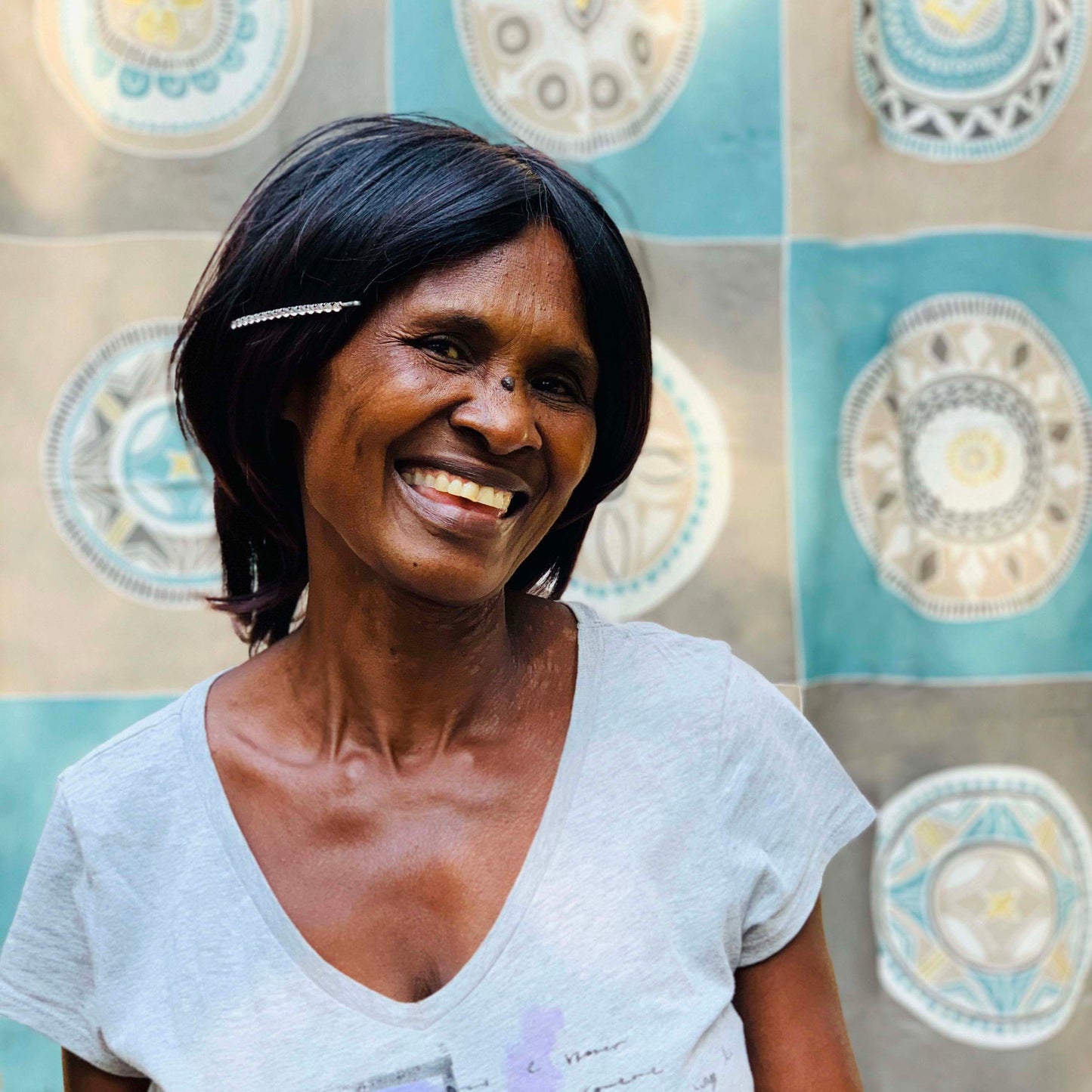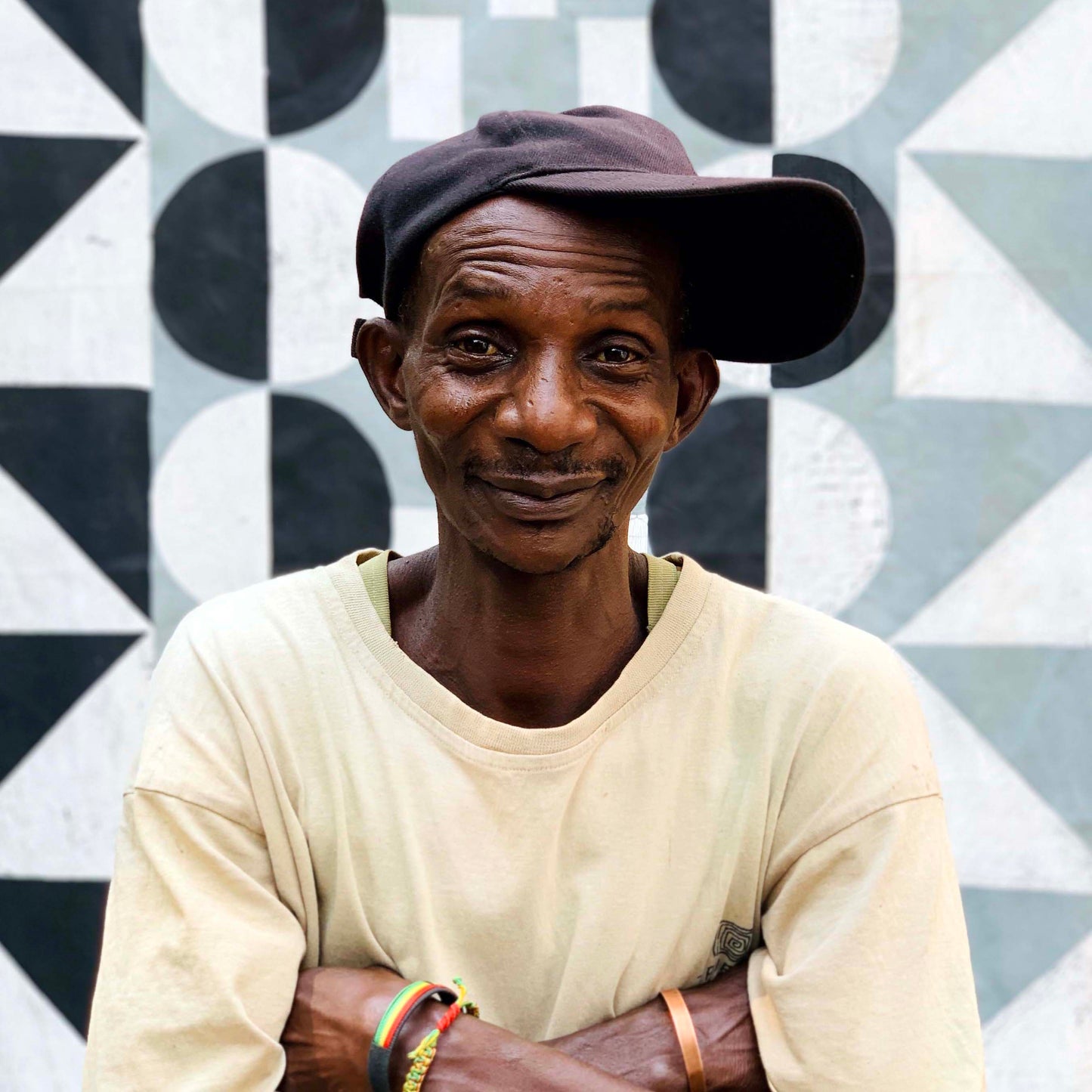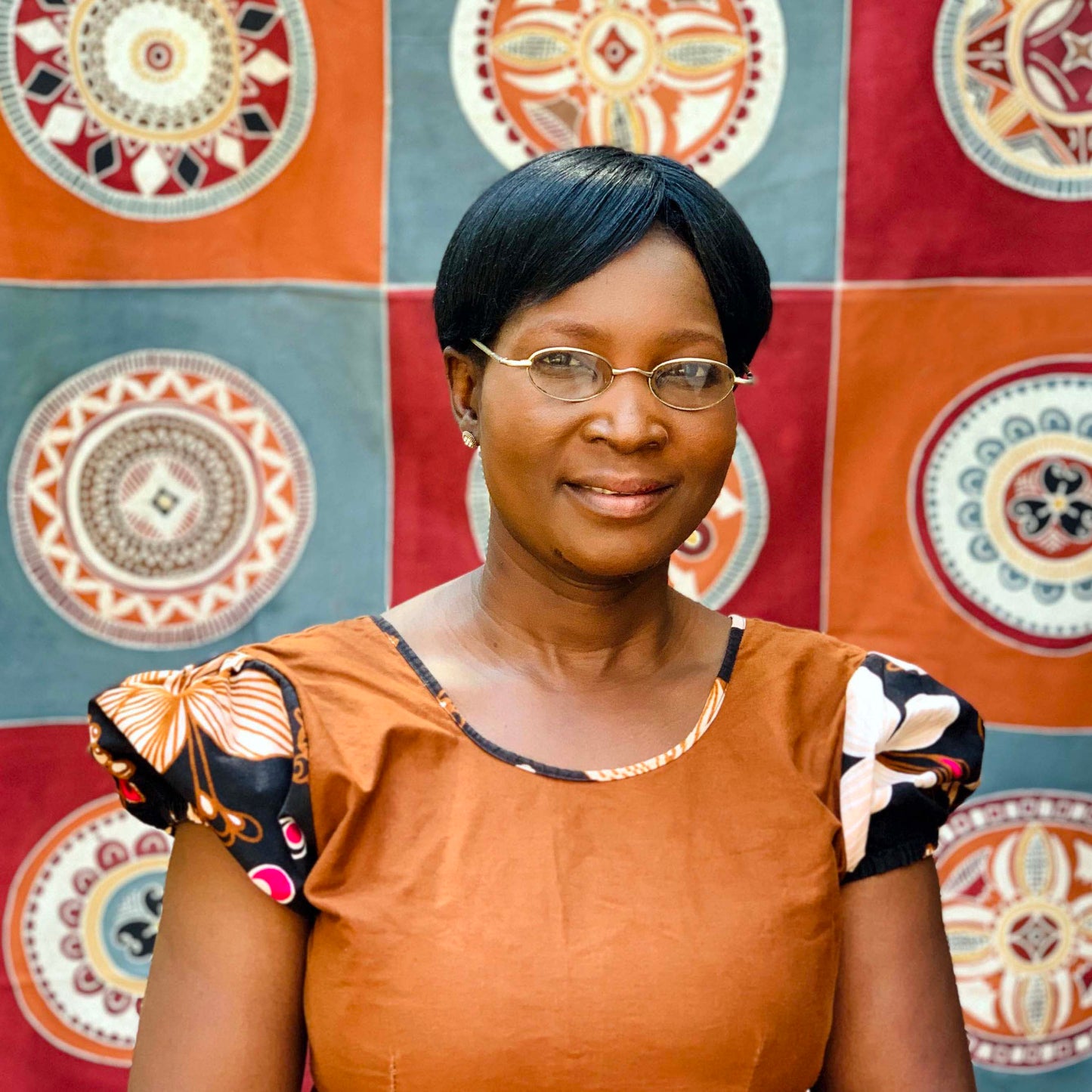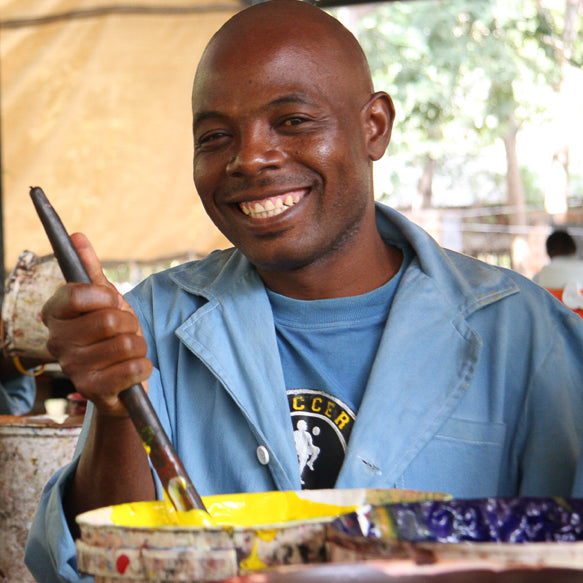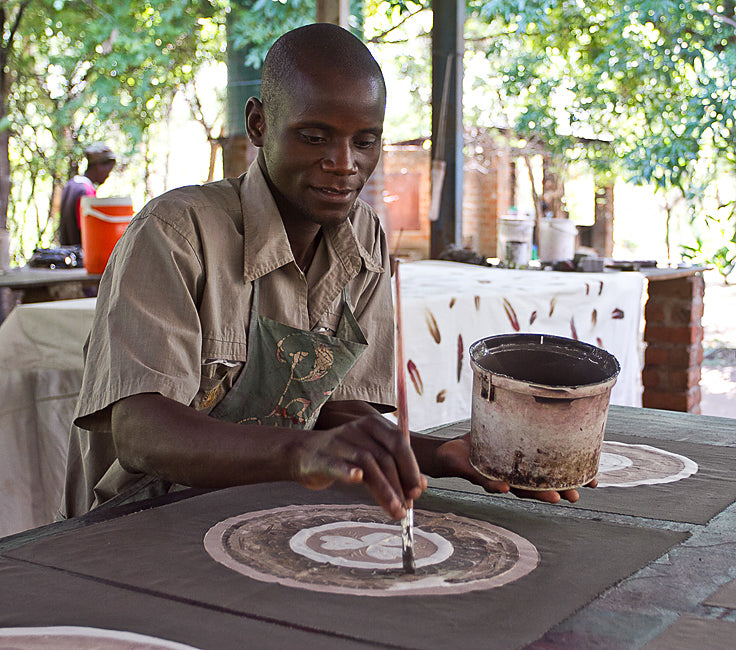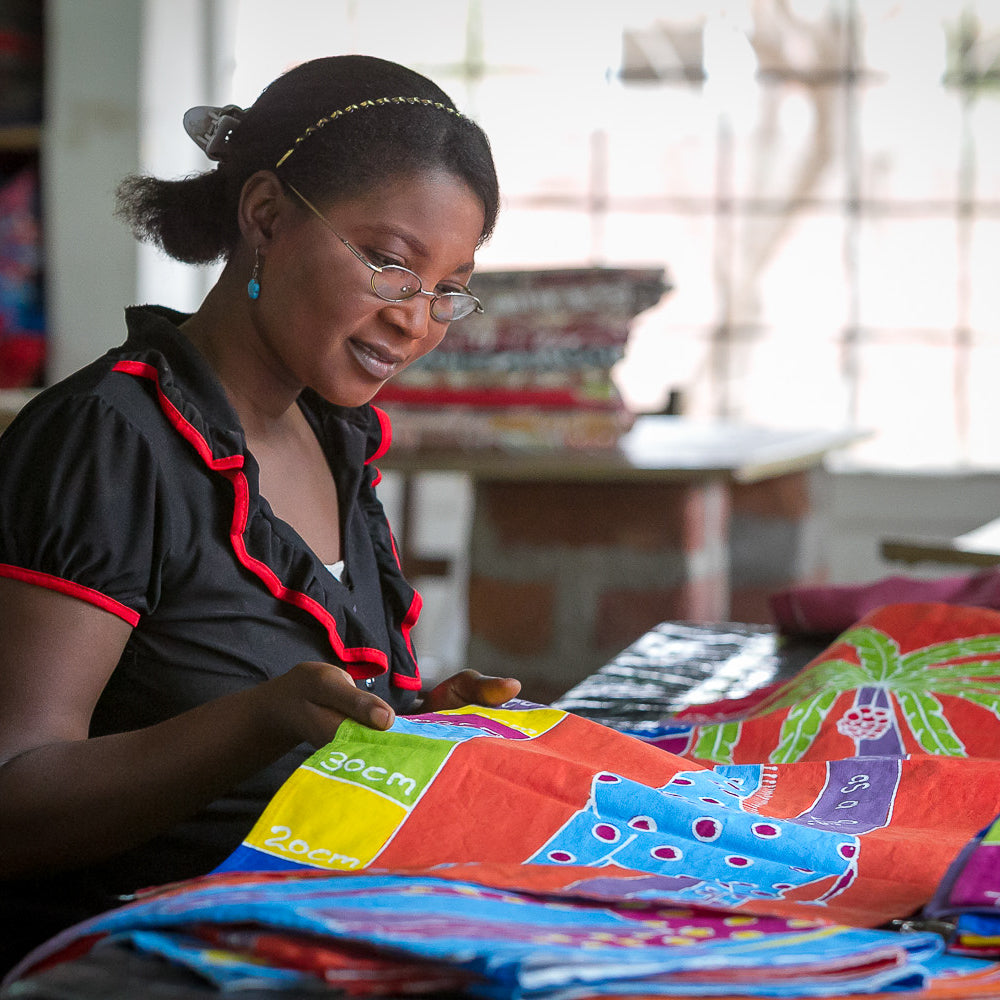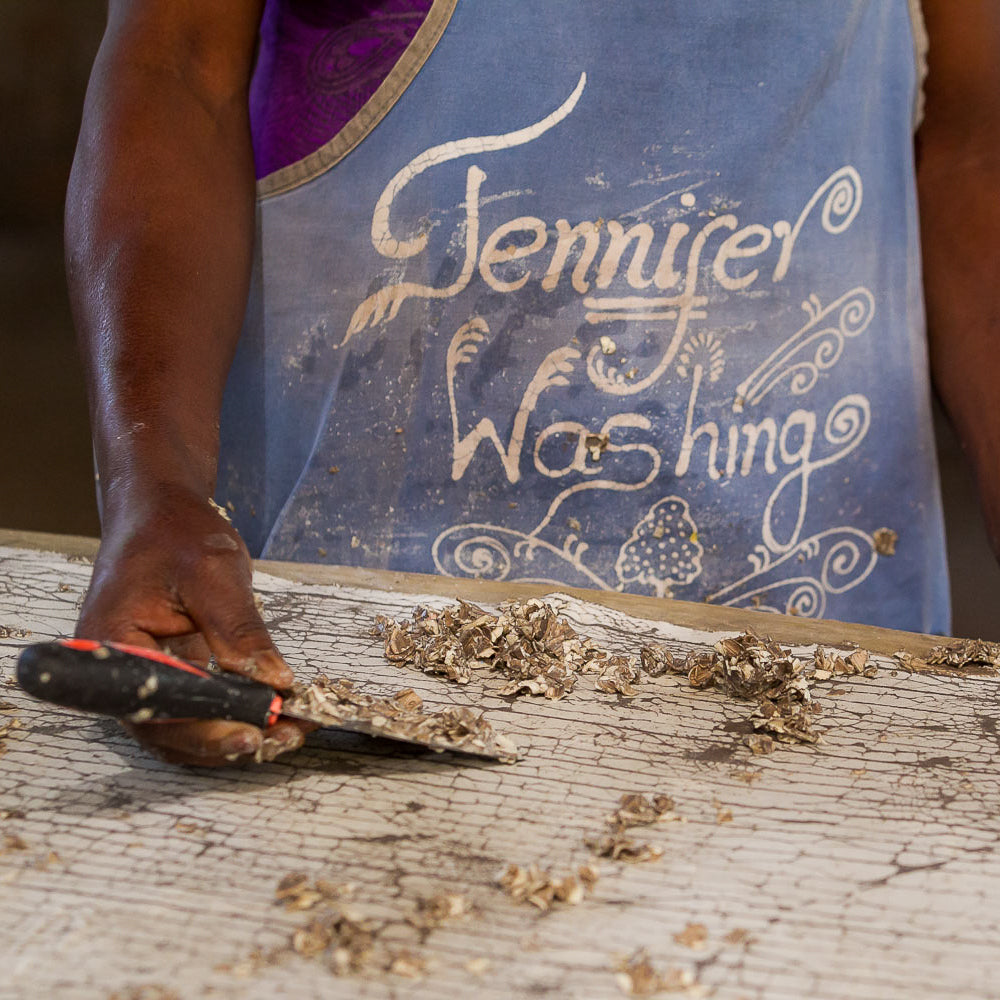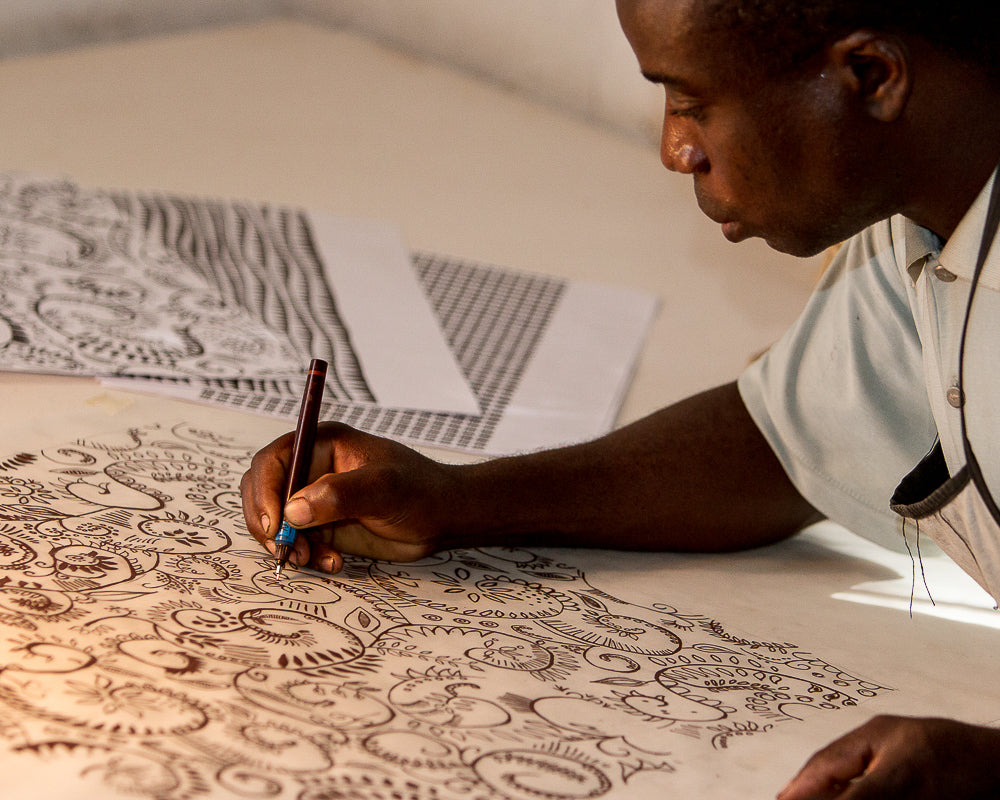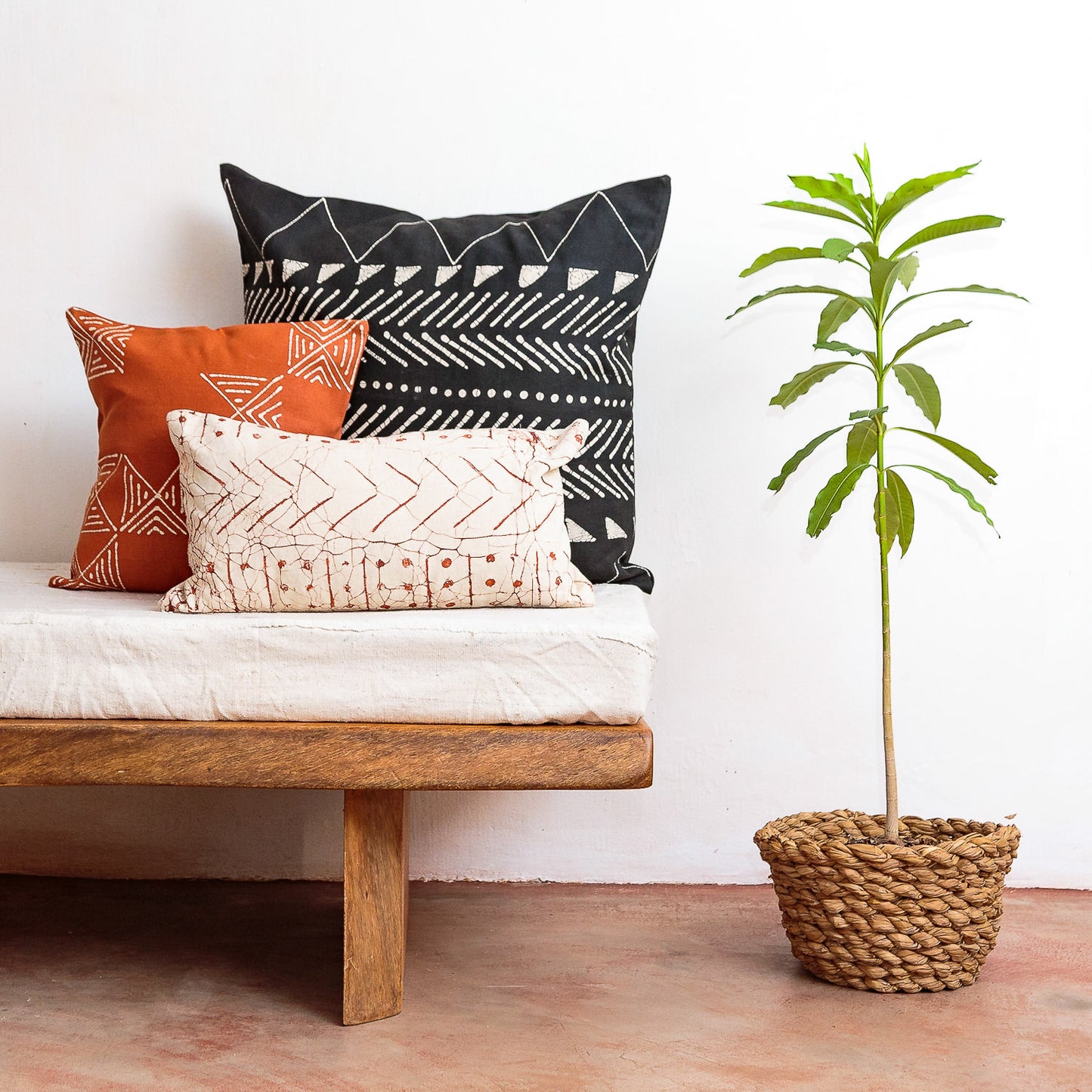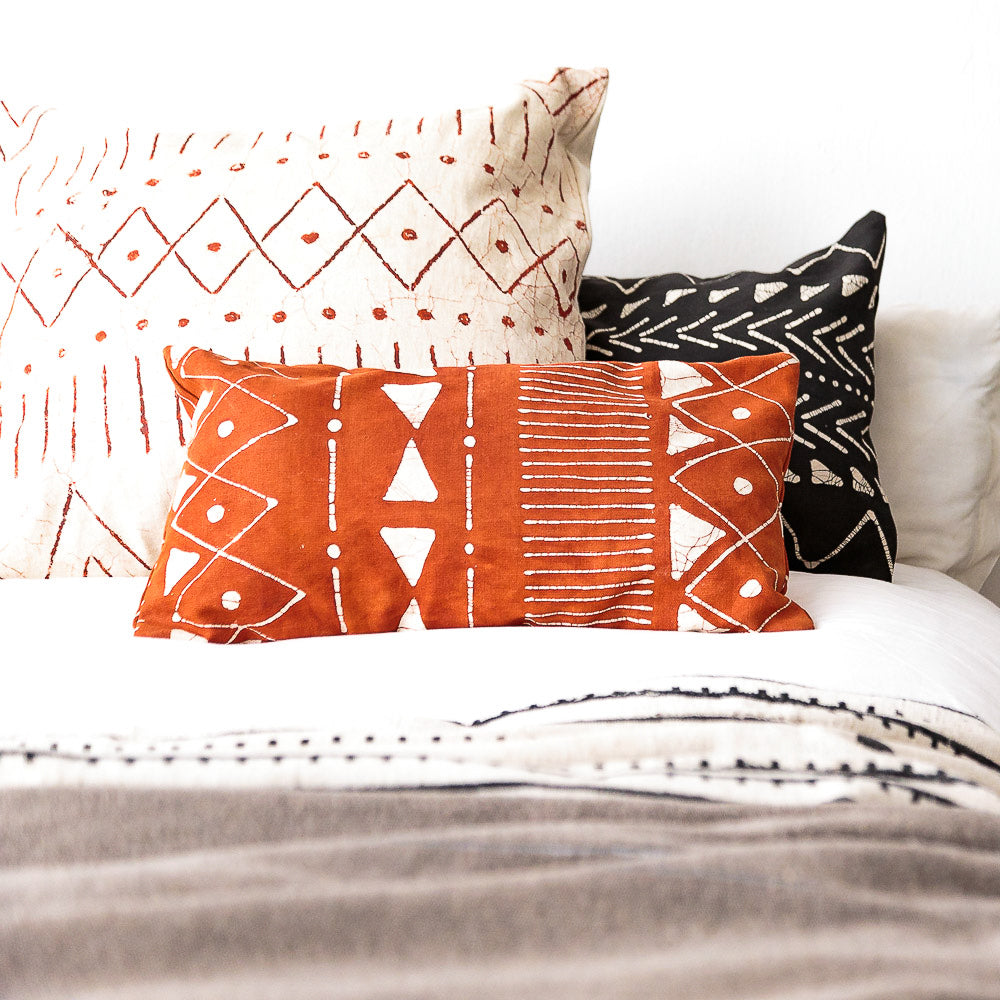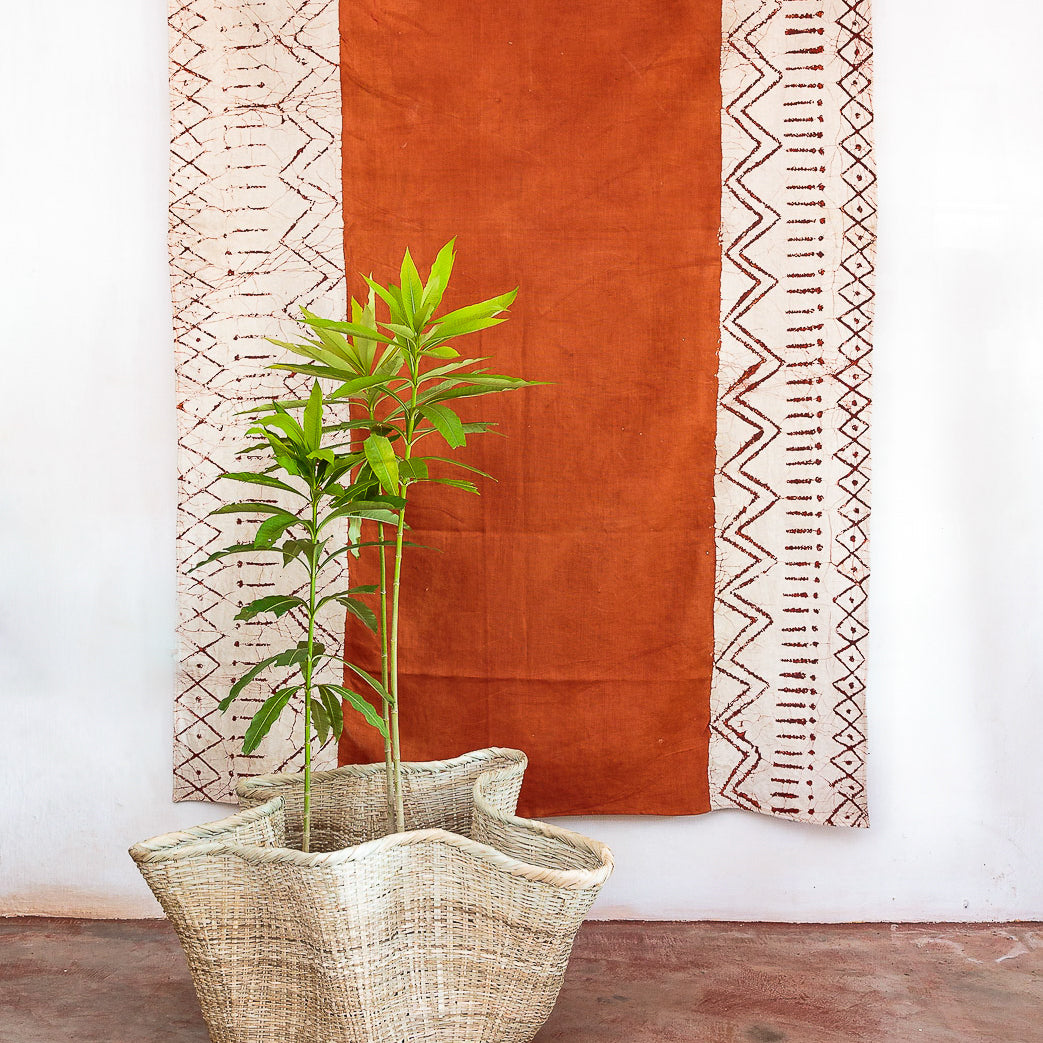Zambia & France Cross Cultural Collaboration, Tribal Textiles, Hand-Painted Textiles
Based in South Luangwa, a remote region of Zambia, Tribal Textiles employ local artisans to create ethically handcrafted home décor pieces. Their hand painted textiles draw inspiration from Africa’s vibrant heritage, blending traditional techniques with contemporary composition and colours.
Textile craft has always been an important aspect of Eastern Africa culture. Zambia used to be one of the main cotton producers for the rest of Africa and cotton was found aplenty, but now, many of the hills have disappeared so now Tribal Textiles sources their cotton from Zimbabwe.
Their starch resist technique is similar to batik but entirely unique to Tribal Textiles. It was created 27 years ago by founder Gillie Lightfoot, who was living in a very remote part of Zambia with no electricity. With local Zambians, she experimented with different pattern effects inspired by traditional techniques derived from Mali mud cloth and block printing techniques from Zimbabwe. Using only supplies she could find locally, she hit upon the idea of using flour and water to starch cloth and then painting over the top to create patterns and designs onto fabric. Now, they hand mix paints to match Gillie’s designs which are then hand painted directly onto the white starched fabric. The cloth is then dried in the sun before being washed. Once softened, the starch design is then carefully scraped to produce Tribal Textiles’ signature crackle effect to their pieces, before being sewed up into finished items and garments.
The hand painted textiles blend traditional batik techniques with contemporary compositions and bold colours. From the animals that roam the land in local Luangwa National Park, to the iconic motifs of Africa’s vibrant heritage, their textiles draw inspiration from the culture and wildlife that surround them. Each of their designs is hand-drawn and painted using a vibrant palette of hand-mixed colors. All the paints come from South Africa. They are water-based, non-hazardous, and non-toxic, making them safe for people and the environment.
Each of their products is made by hand with respect for the environment and people. From design to production, they minimize our environmental impact by sourcing locally, using sustainable materials, and repurposing waste. Living in a remote region of Zambia with no efficient waste management system in place, Tribal Textiles uphold a zero-waste pledge throughout their production process. Any leftover paint from a design project is mixed together to produce black paint and fabric scraps are utilised to create a variety of small accessories.
Community is at the core of everything Tribal Textiles do. Located in a remote region of Zambia, the cooperative believes in creating a sustainable impact through grassroots development. They strive to strengthen their small, rural community by providing artisans with the opportunities, support and resources to thrive, creatively supporting wildlife conservation, and investing in local initiatives.
To further follow the story of Tribal Textiles, find them on social media here.
Share
